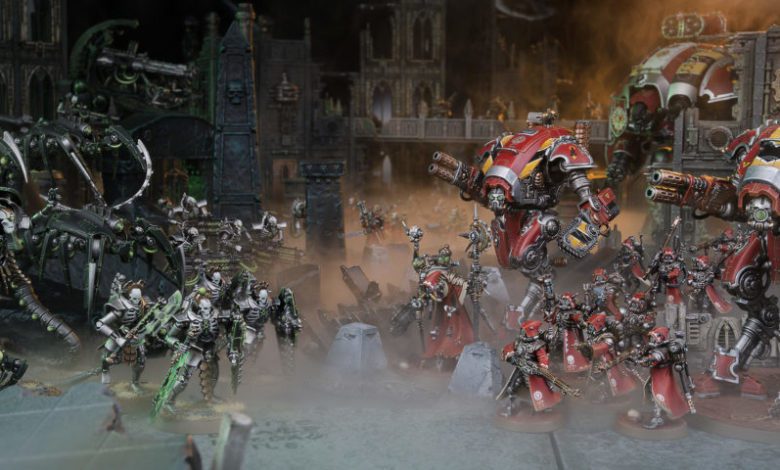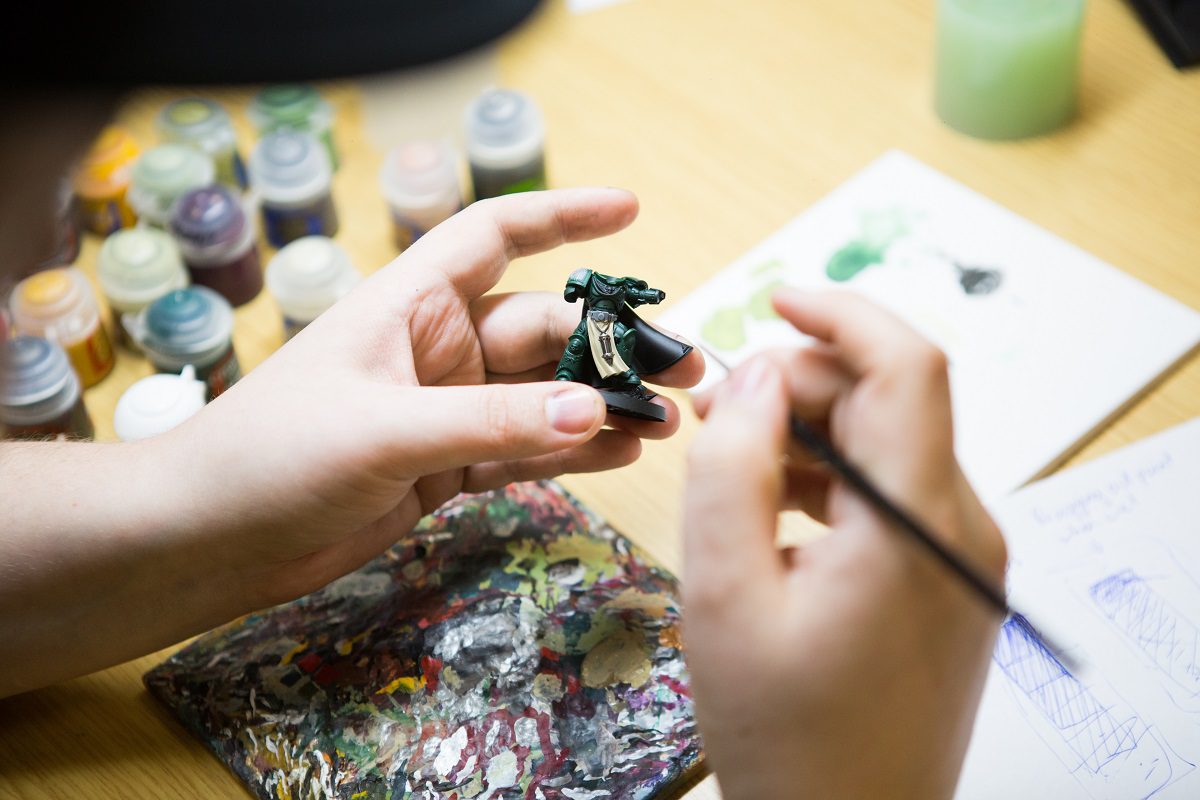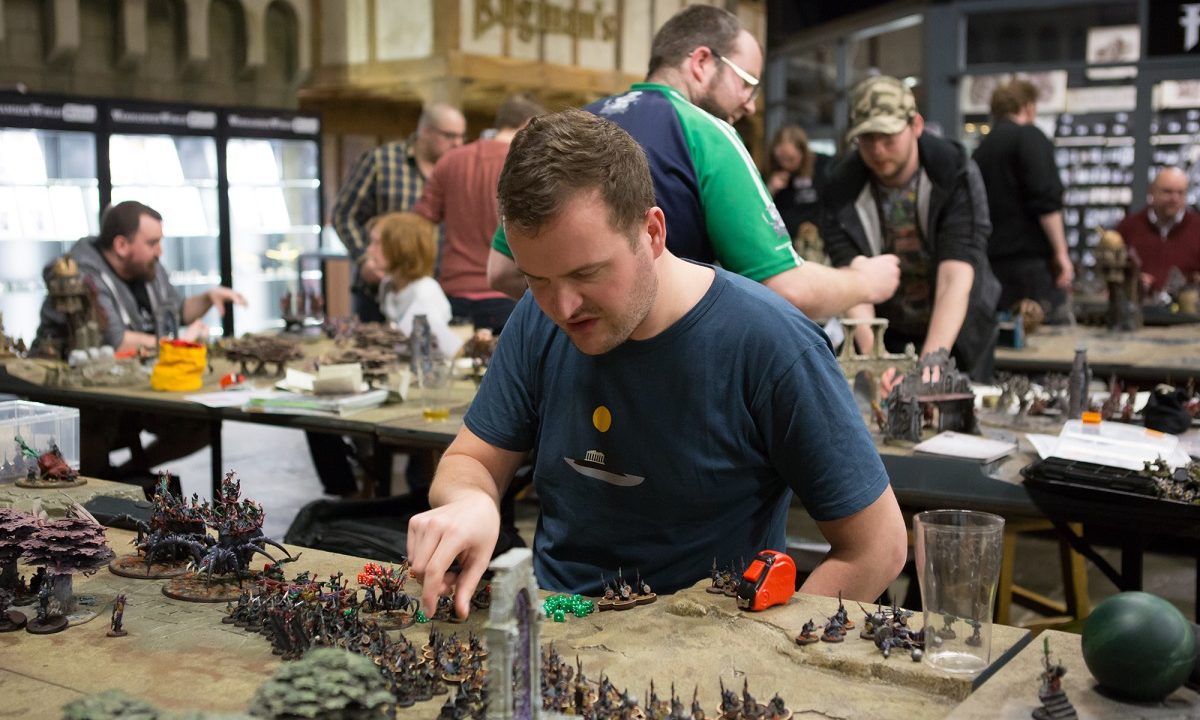How Games Workshop is standing up against the UK’s high street woes

In what is still an incredibly turbulent time for the retail market, fantasy miniatures retailer Games Workshop has seen explosive growth in recent years and remains defiant against a tide of CVAs, job cuts and declining profits sweeping the UK’s high streets.
And it shows no real signs of slowing down.
Since May 2017, shares in the company have skyrocketed by as much as 403%, and in its most recent trade update for the year ending 2 June 2019, Games Workshop reported a 16% increase in revenues to £256.5m.
During the period, the retailer opened 40 new stores, including eight relocated stores, all of which generated £3m of profitable sales. Operating profit also increased by £6.8m to £81.1m, and retail sales grew by 7% in the year. Not only that, online sales grew by 5% in the year, with Games Workshop’s online offering playing an important part of it sales strategy – one it said it will continue to focus on and invest in over the coming year.
These are very strong results from what can still be considered a niche tabletop gaming franchise – one that many may have never encountered or heard of up until reading this article. So what is driving this exceptional growth?
The retailer specialises in miniature figures that customer can paint and build, forming part of a larger army which are then used in a turn-based game involving dice, measuring tapes and a whole lot of strategy. Think chess but with colossal mechanised robots and orcs instead of pawns and knights.

The company’s Warhammer franchise was created by Rick Priestley, with Bryan Ansell and Richard Halliwell, who designed the miniatures game for Games Workshop, but the company itself was founded by fantasy novelists Ian Livingstone and Steve Jackson – best known for their Fighting Fantasy ‘gamebooks’ – along with games designer John Peake back in 1975.
In 1981 Games Workshop helped found Citadel Miniatures Limited, a manufacturer of metal miniatures based at Newark-on-Trent, in Nottinghamshire. A few years later the company moved closer to Nottingham and began to develop and expand, producing a wealth of miniatures, kits and books under the Games Workshop name.
Tom Kirby, the group’s chairman, joined the company in 1986 as general manager. In December 1991, Kirby led a management buy-out and in September 1994 the company was floated on the London Stock Exchange. In October 1997, all UK based operations were relocated to the current HQ in Lenton, Nottingham.
With this in mind, the company’s loyal following is a huge factor in its current successes, with the regular release of new products keeping fans coming back for more. This is supported by a detailed lore that the company has built for itself over many decades for its most popular franchises, Warhammer and Warhammer 40,000, with its dizzying depth enticing fans to keep up to date with the latest iteration of the game.
The way Games Workshop handles its in-store interactions with its customers is also another key aspect of its business model, one that is continuously driving footfall to its stores. The shops serve as both a retail space and a hub for fans of Games Workshop to gather and play together – often hosting event days for its younger audience and tournaments for its die-hard fans.

Staff are always on hand to talk customers through the game and offer painting tips. Some branches even allow customers to paint a model in store which they can then take away for free. So while many retailers are shifting their focus online, Games Workshop hasn’t neglected the selling power of its stores.
All of these factors have proven to be a recipe for success for Games Workshop, and CEO Kevin Rountree said the past 12 months have the best year in the company’s history, “so far”. This implies that the company has no doubts about its continued growth, and its attitude will surely continue to propel the group forward. Let’s see what the coming years will bring.








